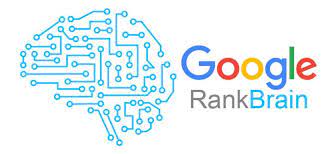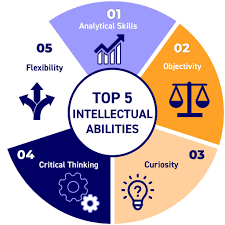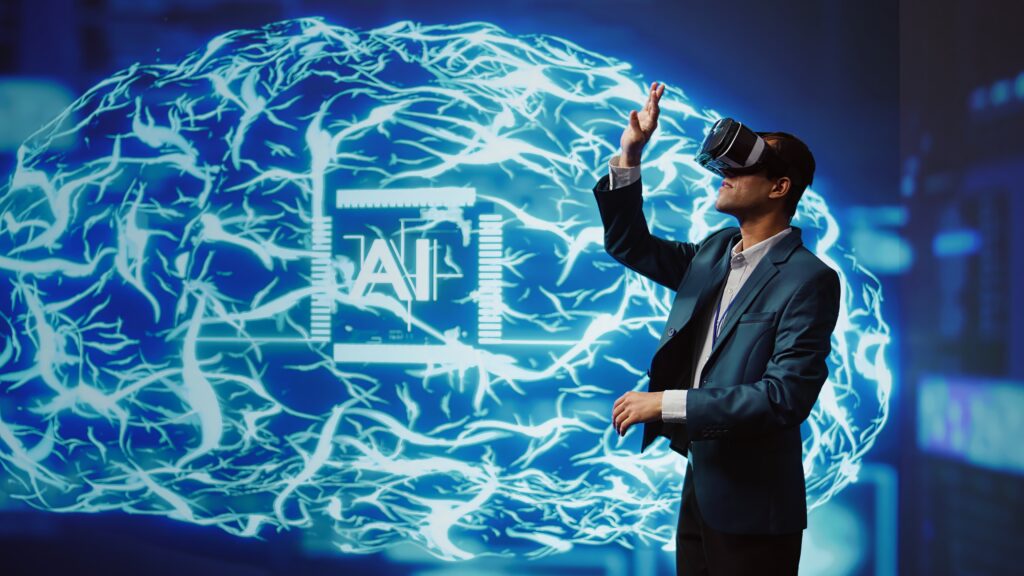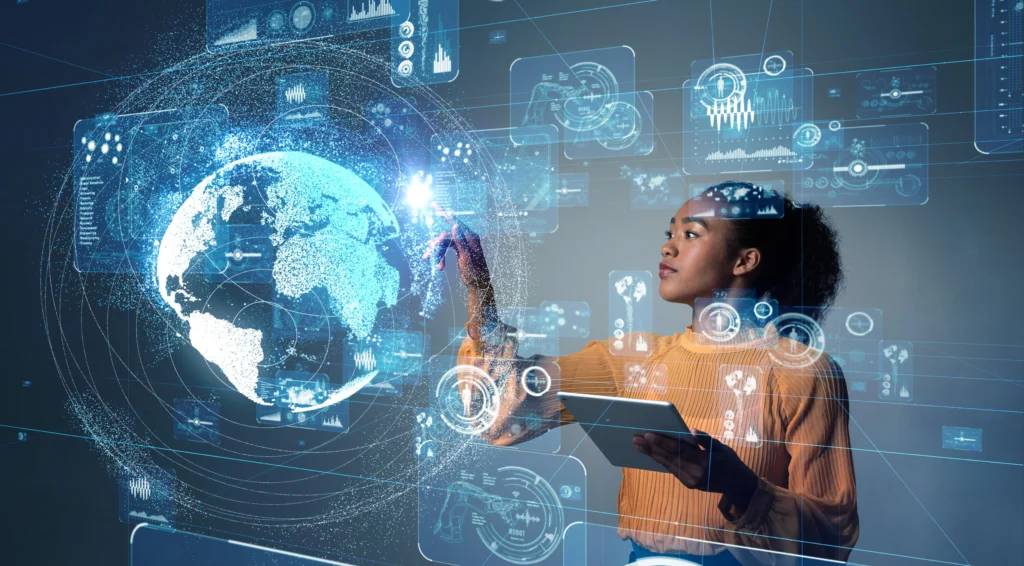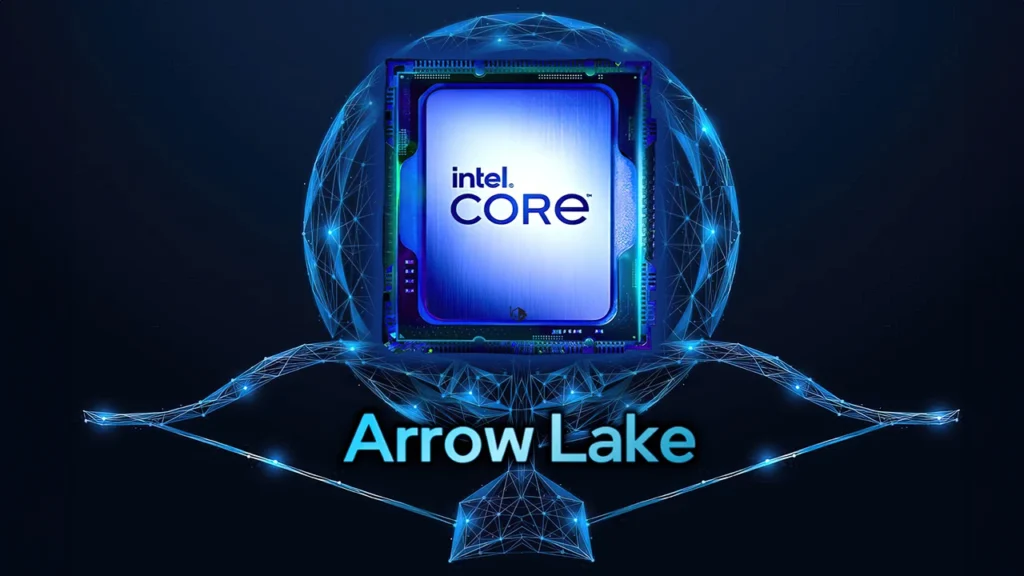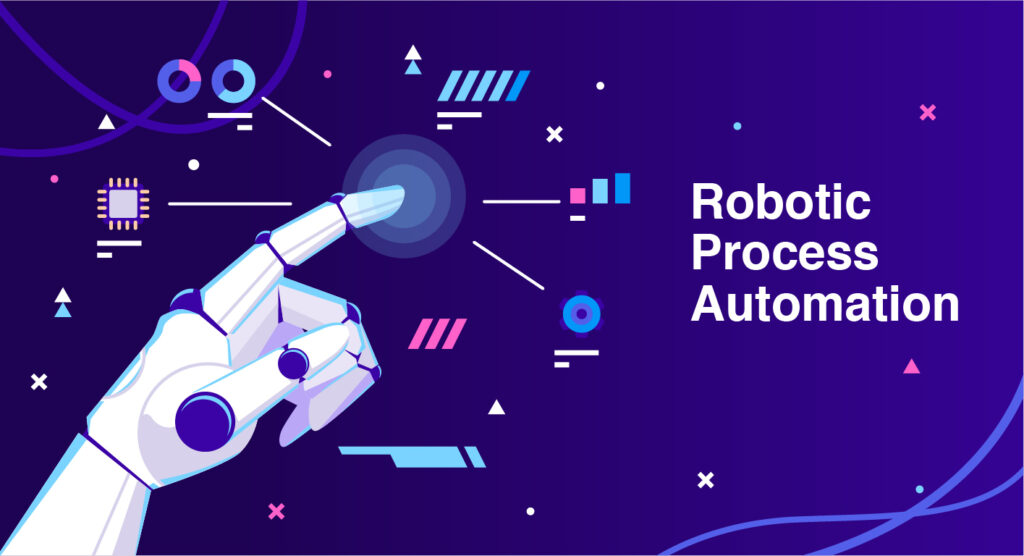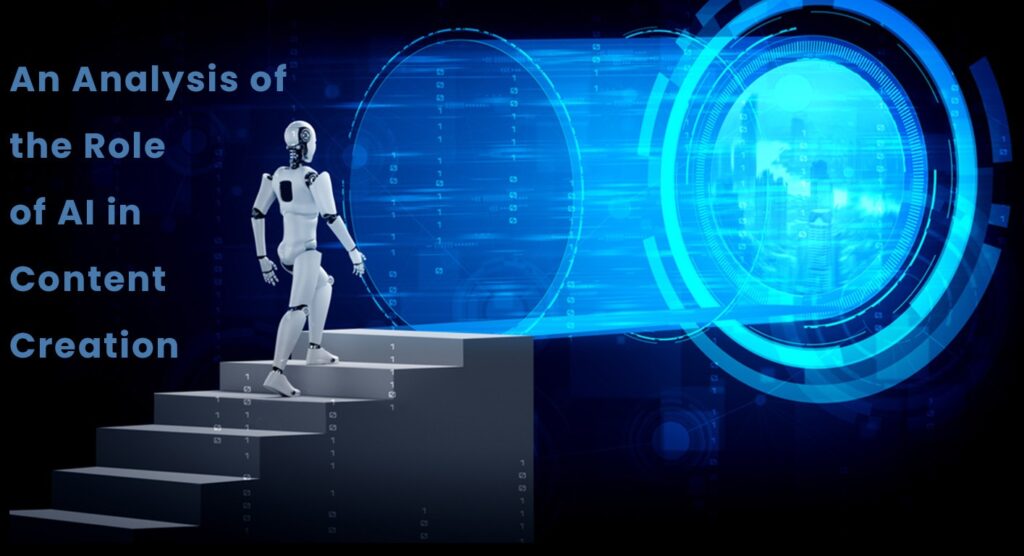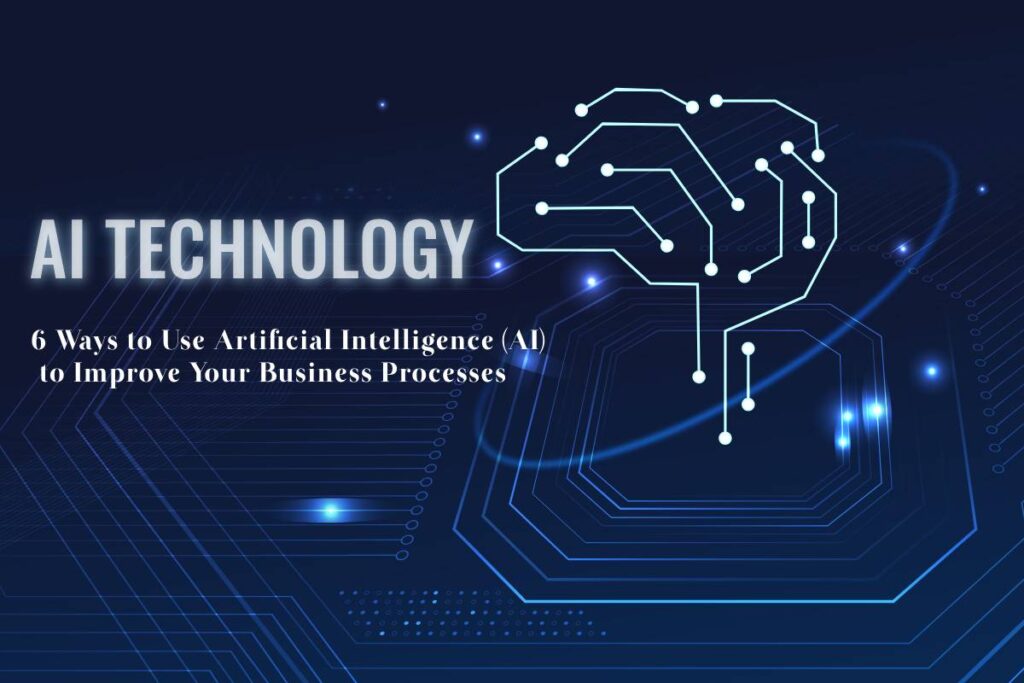6 Ways to Use Artificial Intelligence (AI) to Improve Your Business Processes
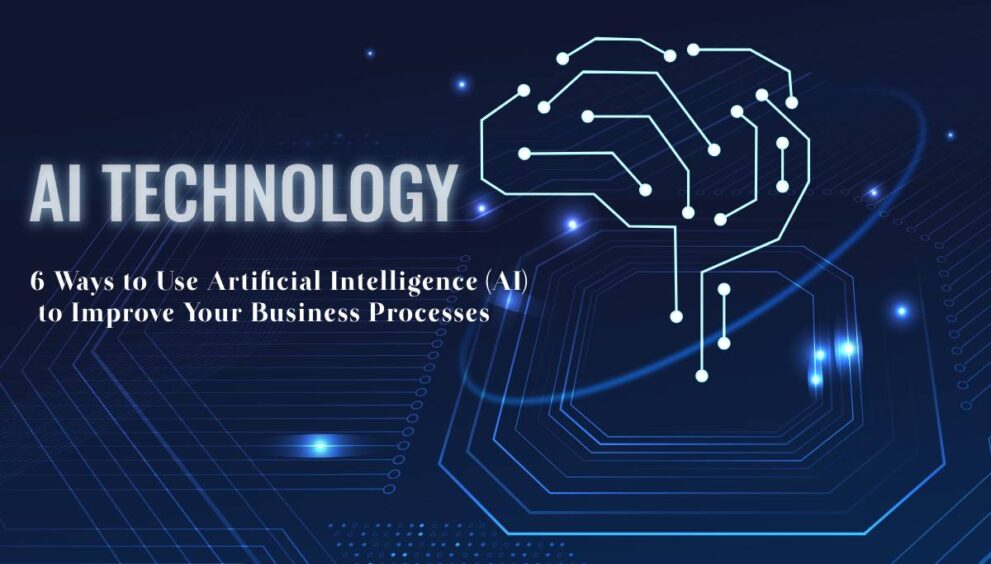
Artificial intelligence (AI) has emerged as a groundbreaking field of study, enabling the development of intelligent machines capable of performing tasks that traditionally required human intelligence. Combining computer science, machine learning, and cognitive science, AI aims to replicate human-like intelligence, opening new frontiers of innovation and possibilities. In this blog, we delve into the world of AI, exploring its various facets and the transformative impact it has across industries.
Understanding Artificial Intelligence
Artificial intelligence encompasses a range of technologies and approaches that enable computers to learn, reason, and make decisions. At its core, AI leverages algorithms and models to process and analyze vast amounts of data, extract patterns, and generate insights. Machine learning, a subset of AI, empowers systems to learn from data without explicit programming, adapting and improving over time.
Deep learning, an advanced form of machine learning, mimics the structure and functioning of the human brain, employing artificial neural networks to process complex datasets and achieve highly accurate predictions and classifications. Natural language processing equips computers to comprehend and generate human language, leading to innovations like speech recognition and language. Computer vision enables machines to interpret and understand visual data, revolutionizing image recognition, object detection, and more.
Applications of Artificial Intelligence
There are various subfields and approaches within AI, including:
- Machine Learning: Machine learning focuses on developing algorithms that allow computers to learn from data without being explicitly programmed. These algorithms enable systems to improve their performance over time by automatically adapting and adjusting their behavior based on patterns examples.
- Deep Learning: Deep learning is a subset of machine learning that uses artificial neural networks inspired by the structure and function of the human brain. Deep neural networks composed of multiple layers of interconnected nodes, can process and extract features from large and complex datasets, enabling them to make highly accurate predictions or classifications.
- Natural Language Processing (NLP): NLP involves enabling computers to understand, interpret, and generate human language. It encompasses tasks such as speech recognition, language translation, sentiment analysis, and text summarization. NLP enables applications like virtual assistants and language translation services.
- Computer Vision: Computer vision focuses on developing algorithms and systems that can analyze and understand visual information from images or videos. It enables machines to recognize objects, detect patterns, and interpret visual data. Applications include image recognition, object detection, facial recognition, and autonomous vehicles.
- Robotics: Robotics combine AI and physical systems to create intelligent machines capable of interacting with the physical world. AI-powered robots can perceive their environment, make decisions, and perform physical tasks autonomously or in collaboration with humans. Applications range from industrial automation to healthcare and service robots.
AI is being applied across various industries and domains, including healthcare, finance, retail, manufacturing, transportation, and entertainment. It has the potential to revolutionize business processes, enhance decision-making, improve efficiency, and unlock new opportunities for innovation.
How Can Artificial Intelligence Improve Business Processes
- Automated Data Analysis
One of the significant advantages of AI is its capacity to analyze large volumes of data quickly and accurately. Implementing AI-powered algorithms allows businesses to automate data analysis, saving valuable time and resources. By harnessing the power of AI, organizations can gain actionable insights from complex datasets, identify patterns, trends, and correlations that were previously hidden and make informed decisions based on data-driven evidence. This not only optimizes processes but also enhances overall business strategies.
- Intelligent Customer Services
Providing exceptional customer service is crucial for any business, and AI can play a pivotal role in achieving that. AI-powered chatbots and virtual assistants can handle routine customer queries, provide support, and offer personalized recommendations. These intelligent systems are available 24/7, ensuring instant responses and consistent with the help of natural language processing capabilities, these AI-powered assistants can understand and respond to customer inquiries effectively, leading to improved customer satisfaction and loyalty.
- Predictive Analytics
Predictive analytics is a powerful application of AI that can revolutionize the way businesses forecast future outcomes. By analyzing historical data, market trends, and external factors, AI algorithms can make accurate predictions about customer behavior, market demands, and potential risks. This enables businesses to proactively optimize their strategies, mitigate risks, and capitalize on emerging opportunities. Predictive analytics can be applied to areas such as sales forecasting, inventory management, equipment maintenance, and demand planning leading to significant operational efficiencies and cost savings.
- Process Automation
AI and machine learning technologies have the potential to automate repetitive and mundane tasks, freeing up valuable time for employees to focus on more strategic activities. By automating processes such as data entry, invoice processing, inventory management, and HR workflows, businesses can streamline operations, reduce human error, and increase overall productivity. Automation powered by AI ensures consistent and efficient execution of tasks, ultimately enhancing the efficiency and effectiveness of business processes.
- Demand Forecasting and Supply Chain Optimization
Inaccurate demand forecasting and inefficient supply chain management can lead to increased costs, stockouts, and customer dissatisfaction. AI algorithms can analyze historical data, market trends, and external factors to provide more accurate demand forecasts. By optimizing inventory levels, businesses can ensure they have the right products available at the right time, minimizing stockouts and excess inventory. Additionally, AI can optimize logistics routes and delivery schedules, enhancing operational efficiency and reducing costs associated with the supply chain.
- Fraud Detection and Risk Management
Detecting fraudulent activities and managing and managing risks are critical concerns for businesses across industries. AI algorithms can analyze vast amounts of data in real-time, enabling the identification of anomalies and patterns that may indicate potential fraud or risks. By leveraging AI-powered systems, businesses can proactively detect suspicious transactions, identify potential security breaches, and take time timely action to mitigate risks. This not only helps protect business assets but also maintains data integrity and prevents financial losses.
Considerations and Challenges
While AI offers immense potential, ethical considerations and challenges accompany its development and deployment. Issues such as privacy, bias transparency, and job displacement require careful attention. Striking a balance between innovation and responsibility is crucial to ensure the ethical and responsible use of AI technologies. Initiatives that promote transparency, fairness, and accountability in AI development are paramount to building trust and ensuring a positive impact on society.
Looking Ahead
Artificial intelligence continues to evolve rapidly, promising a future where intelligent machines are integrated seamlessly into our lives. Advancements in AI will lead to enhanced decision-making, improved efficiency, and new opportunities for innovation across sectors. However, a human-centric approach, grounded in ethical principles, must guide the development and deployment of AI technologies to maximize benefits and minimize risks.
Conclusion
Artificial intelligence represents a paradigm shift in computing, empowering machines with capabilities that rival human intelligence. From machine learning and deep learning to natural language processing and computer vision, AI technologies are transforming industries and driving innovation. By embracing the power of AI responsibly, we can unlock new frontiers of possibilities, improve business processes, and shape a future where intelligent machines work hand in hand with humanity for the betterment of our world.





